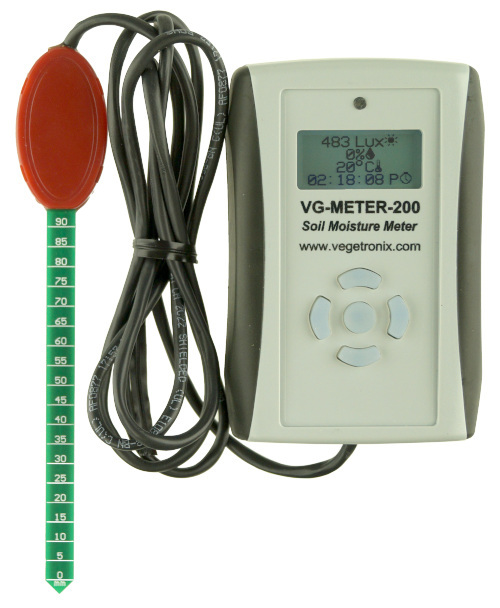Just how to Use a Moisture Meter to Discover Surprise Water Damage in Your Residential property
Just how to Use a Moisture Meter to Discover Surprise Water Damage in Your Residential property
Blog Article
The Ultimate Guide to Moisture Meters: A Comprehensive Overview and Just How They Can Conserve You Money
In the realm of structure maintenance, building and construction, and different industries, the relevance of precisely measuring dampness levels can not be overemphasized. Dampness meters work as essential devices in identifying and checking moisture material in products, helping in preventing expensive damages and making sure the quality of items. Understanding the subtleties of different kinds of moisture meters, their applications, and the possible cost-saving benefits they use can be a game-changer for experts and organizations alike. Finding just how these gadgets can not just improve procedures however additionally contribute to economic savings is a trip worth beginning on.
Kinds of Dampness Meters
Numerous sorts of dampness meters are offered for various applications in numerous sectors. One common type is the pin-type wetness meter, which determines the electric resistance in between 2 pins put right into a product. This kind is suitable for wood, drywall, and other building products. Pinless moisture meters, on the various other hand, usage electromagnetic sensing unit plates to check a bigger location without creating damages to the product's surface area. Moisture Meter. These meters are excellent for quickly assessing moisture levels in large areas such as wall surfaces and floorings.

Infrared wetness meters measure the thermal buildings of a material to establish its dampness content non-invasively, making them useful for applications where pin or pinless meters might not be ideal. Recognizing the various types of dampness meters readily available can assist industries choose the most suitable tool for their particular moisture measurement requirements.

Advantages of Utilizing Dampness Meters
Moisture meters supply indispensable benefits in properly examining and monitoring dampness levels in diverse products and settings. One of the main benefits of making use of dampness meters is the prevention of potential damages triggered by excess wetness.
Additionally, using dampness meters can cause enhanced energy performance. By determining areas with high dampness levels, such as leakages or bad insulation, modifications can be made to improve power conservation and reduce energy costs. In agricultural setups, moisture meters play a crucial duty in enhancing crop returns by enabling farmers to check soil dampness levels and make educated irrigation choices. In general, the advantages of utilizing dampness meters cover throughout various sectors, offering cost-efficient options and advertising much better quality assurance methods.
How to Select the Right Dampness Meter
Selecting the proper dampness meter involves thinking about vital factors such as material compatibility, measurement variety, and calibration precision. When choosing a moisture meter, it's necessary to make certain that the meter appropriates for the particular product you will certainly be testing. Various products have varying electric buildings that can influence moisture readings, so picking a meter made for your product is vital for exact outcomes. Furthermore, think about the dimension variety of the dampness meter. Make certain that the meter can spot next page moisture degrees within the array needed for your applications. Calibration precision is one more crucial element to keep in mind. Select a moisture meter with trusted calibration to ensure exact and constant readings. Some meters may call for routine calibration changes, so comprehending the calibration process is necessary. By thoroughly assessing these factors, you can pick a dampness meter that satisfies your requirements and provides exact dampness measurements for your projects.
Correct Methods for Dampness Meter Use

Cost Cost Savings With Dampness Meter Applications
How can the tactical usage of wetness meters lead to considerable price savings throughout different industries? In the agriculture industry, moisture meters help in figuring out the optimum time for collecting view website plants, protecting against over-drying or excess dampness that can influence the final product's quality.
Similarly, in building and construction, wetness meters help stop expensive damages by detecting moisture degrees in building products, such as timber or concrete, which can cause architectural concerns otherwise resolved immediately. By identifying issue locations early, professionals can take restorative procedures to prevent substantial repairs or replacements, ultimately conserving time and money.
In addition, in the food processing market, moisture meters are vital for monitoring product top quality and making certain conformity with security regulations. By accurately determining wetness content in food, manufacturers can protect against perishing, preserve quality, and reduce waste, causing considerable price savings. On the whole, the strategic application of moisture meters is a useful financial investment that can bring about substantial price decreases and improved efficiency across various markets.
Final Thought
In verdict, dampness meters are beneficial tools for discovering and determining wetness levels in various materials. By utilizing the right moisture meter and following appropriate strategies, individuals can properly prevent expensive her response damages triggered by excess moisture.
Dampness meters serve as essential tools in detecting and keeping an eye on moisture content in materials, aiding in stopping costly problems and making certain the top quality of items. Infrared moisture meters determine the thermal buildings of a material to determine its moisture content non-invasively, making them helpful for applications where pin or pinless meters may not be ideal.Wetness meters offer vital advantages in precisely examining and keeping an eye on dampness degrees in diverse materials and settings. In agricultural settings, wetness meters play an essential duty in maximizing plant yields by enabling farmers to check soil wetness degrees and make informed irrigation choices.In conclusion, wetness meters are beneficial tools for discovering and determining moisture degrees in various materials.
Report this page